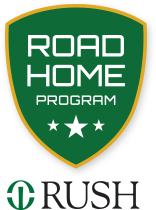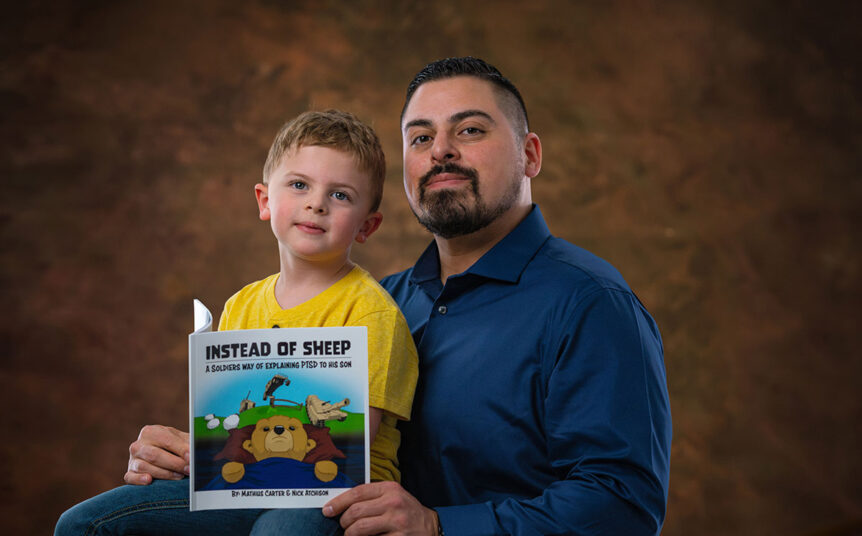My name is Mathius Carter. I am an Outreach Coordinator at the Road Home Program and I recently authored a children’s book called “Instead of Sheep: A Soldier’s Way of Explaining PTSD to his Son”.
I am an Army veteran with a family history of military service. One month before 911, I found myself in boot camp at Fort Knox in Kentucky. Two years later, I was in Iraq deployed as part of the 32nd Signal Battalion, attached to 3rd ID. I was injured in a mortar attack on my truck. Miraculously I survived. Not everyone did. After service and college, I joined a non-profit called Veterans Path to Hope as a Case Manager. It was there that I began to realize the long-term cost of war. When three veterans in my caseload and a good friend and brother from Iraq all committed suicide, I realized that I, too, was not OK mentally.
I reached out for help and found a lifeline with the Road Home Program. When a job opportunity opened up at Road Home, I signed on as an Outreach Coordinator. One night, my son and I were at a Military Appreciation Night hosted by the Chicago Wolves hockey team. The Wolves open each game with a loud and flashy pyrotechnics display. I sensed that it could be triggering, but my son was excited to stay. So being a dad, I gutted it out and paid the price.
The next day I told my clinician about my panic attack. It was something I never wanted my son to see. The clinician suggested that I find an age-appropriate way to talk about what I was going through and, in that moment, the idea of a book was born. I reached out to a friend I had first met in kindergarten, Nick Atchison. Nick is a gifted illustrator and served in Iraq at the same time and attached to the same unit, the 3rd ID. But more importantly, Nick has five children and knew what we both wanted to say.
I consider our book to be a tool. I wrote it as a way to talk about PTSD to little ones who don’t always understand what is going on. Nick and I plan on more books to come, aimed at an older audience and tackling more complicated topics, like traumatic brain injury and moral injury.
Mathius Carter,
Outreach Coordinator at the Road Home Program
The Road Home Program offers support and services to family members at no cost and regardless of discharge status. We take the time to understand your family’s unique situation and tailor our care to best serve your individual needs. If you, or a loved one needs help, call us at (312) 942-8387 (VETS) or fill out the Get Care form.

